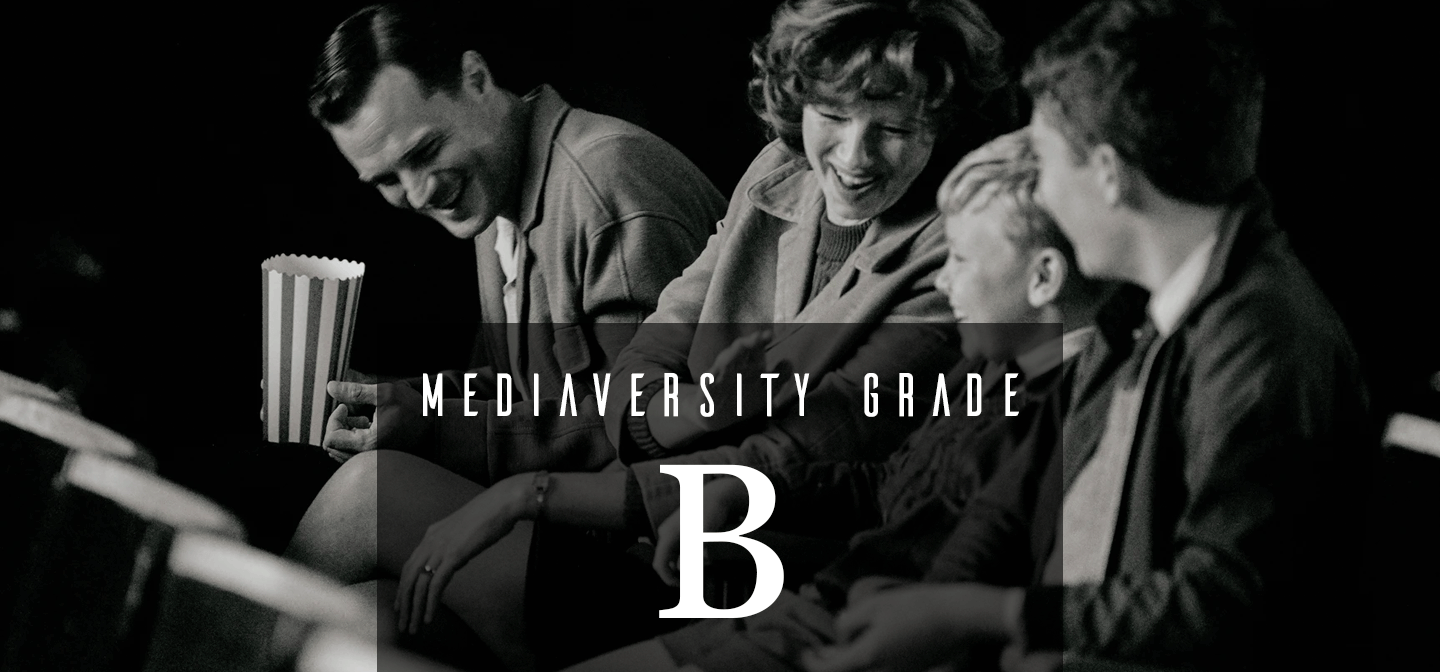Conclave
“Conclave provokes a great deal of thought, but unfortunately, some stereotypes linger.”
Title: Conclave (2024)
Director: Edward Berger 👨🏼🇩🇪🇦🇹🇨🇭
Writers: Screenplay by Peter Straughan 👨🏼🇬🇧 based on the novel by Robert Harris 👨🏼🇬🇧
Reviewed by Sarah Manvel 👩🏼🇮🇪🇺🇲🌈
—MAJOR SPOILERS AHEAD—
Technical: 5/5
In the beautifully made Conclave, based on the 2016 novel by Robert Harris, the death of the Pope brings 108 cardinals from around the world to lock themselves away in the Vatican and choose a successor. Philosophical debates about the direction of the Catholic Church, and about main contenders’ politics, echo off stone hallways and lunchrooms as men in robes and reading glasses jockey for power.
Ralph Fiennes plays the British Cardinal Lawrence, the leader of the conclave who ostensibly runs an objective voting process while working in secrecy with others to try to ensure that a liberal pope is selected. We stick closely to Lawrence throughout the process, learning things as he does and seeing everything he sees. But the film’s scope belies Lawrence’s cloistered surroundings, as Stéphane Fontaine’s gorgeous cinematography, Hauschka’s music, and Nick Emerson’s editing add a palpable tension that heightens the importance of the debates taking place on screen.
When Stanley Tucci as the American Cardinal Bellini hisses “This IS a war!” he’s not exaggerating: Outside of the conclave, riots fill the street, and in the movie’s most arresting shot, a bomb damages the Sistine Chapel. Meanwhile, the cardinals fight over the future of the Church with votes instead of bombs. It’s rare to see a movie address the mechanics of power without resorting to physical violence, but Conclave’s culture war is as fierce as any.
Gender: 1.5/5
Does it pass the Bechdel Test? NOPE
The Catholic Church has never allowed women into leadership roles—its ruling body, the College of Cardinals, is currently made up of over 250 men (and no women). Therefore, a movie about these cardinals would be hard-pressed to achieve gender parity.
Many nuns scuttle in the background, serving food or making beds. Only Isabella Rossellini as Sister Agnes has a role of significance: She puts one of the movie’s most pivotal moments into action, positioning herself as a character of equal importance to the men despite much less screen time. Less impressively, Sister Shanumi (Balkissa Maiga) sits at the heart of a subplot as a victim, but she lacks a single word of dialogue.
Race: 2.75/5
In addition to the shabby treatment of Sister Shanumi, who’s Nigerian, the Nigerian Cardinal Adeyemi (played by Zimbabwean actor Lucian Msamati) is singled out as homophobic. What’s more, his main plot point revolves around a past sexual indiscretion. Though he’s not the only cardinal with scandal in his past—Canadian Cardinal Tremblay (John Lithgow, an American) is accused of financial crimes—it would have been fresher to swap their backstories, giving the Black cardinal a white-collar crime and attributing the sexual misbehaviour to a white man.
On the other hand, the film easily inhabits a multicultural world, which mirrors the Church’s global reach. Characters switch between languages with ease, with the Italian Cardinal Tedesco (Sergio Castellitto) pointing out that everyone self-segregates by language, instead of all speaking Latin as in the old days.
The film also features the Mexican Cardinal Benitez (played by Mexican actor Carlos Diehz, in his first major role). For his own safety as the Archbishop of Kabul, Benitez’s Church affiliation was known only to the late Pope. When Lawrence eventually introduces Benitez to the broader conclave, he highlights the Archbishop’s experience working in hostile and war-torn dioceses and emphasises the respect Benitez is therefore due. Benitez’s soft-spoken kindness mightily impresses almost everyone in the conclave, not least because they appreciate how much more difficult his career has been compared to the soft luxury of theirs.
Bonus for Age: +0.50
Mainstream movies under-represent characters over 60, and Conclave’s cast is largely made up of actors in this age range. Among the main actors, Msamati (Adeyemi) is the youngest at 48, and Lithgow (Tremblay) is the oldest at 79.
—MAJOR SPOILERS IN THE NEXT CATEGORY—
Bonus for LGBTQ: +0.50
At the end of the film, Benitez is elected Pope. Then comes the twist: Lawrence learns that Benitez is intersex. The plot point could have felt tawdry, but the filmmakers give Benitez enough screen time to make his character as fully known as the others. Furthermore, the “twist” isn’t just thrown in for shock value: It taps into the philosophical debates throughout the film about inclusion vs. exclusion and faith vs. doubt. The mere idea of a nonbinary person becoming Pope challenges the entire ethos of the Catholic Church, which believes only men can lead.
It does, however, feel like a letdown that the “reveal” about Benitez’s secret is shown only from Lawrence’s point of view. It also hinges on Lawrence’s power as dean of the College of Cardinals to disclose Benitez’s status to the broader group, which could possibly nullify the election. It’s already been established that Lawrence is a kind and decent man; it would have been much more interesting if one of the more conservative and traditional cardinals had been asked to keep the secret instead. Better yet would be incorporating more of Benitez’s perspective into this subplot.
—END SPOILERS—
Mediaversity Grade: C+ 3.42/5
This arresting, expertly made movie provokes a great deal of thought with its final twist. But it’s unfortunate that racial stereotypes linger, and women are mainly seen but not heard.




